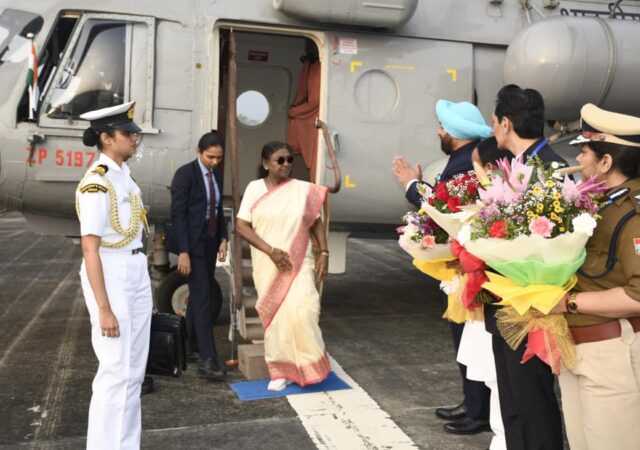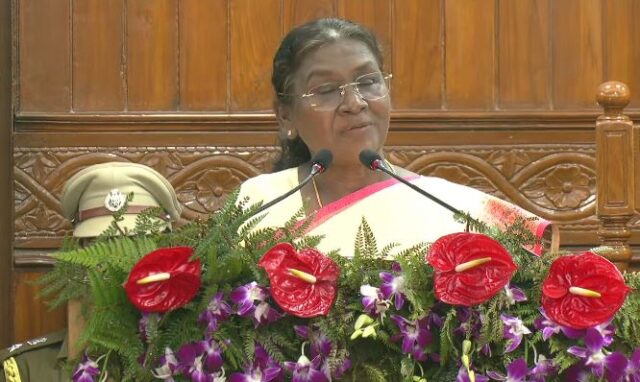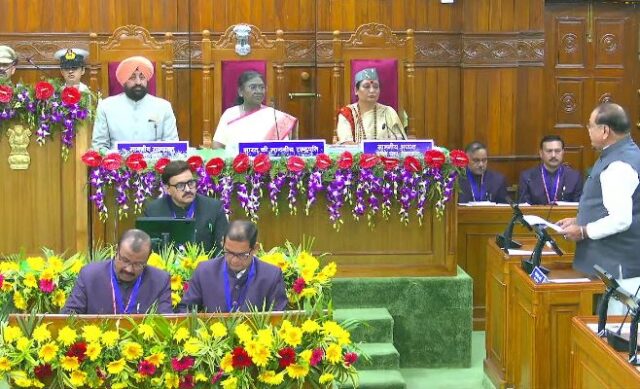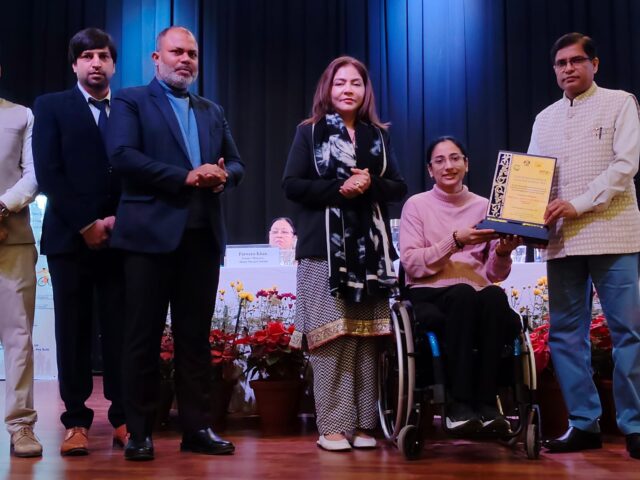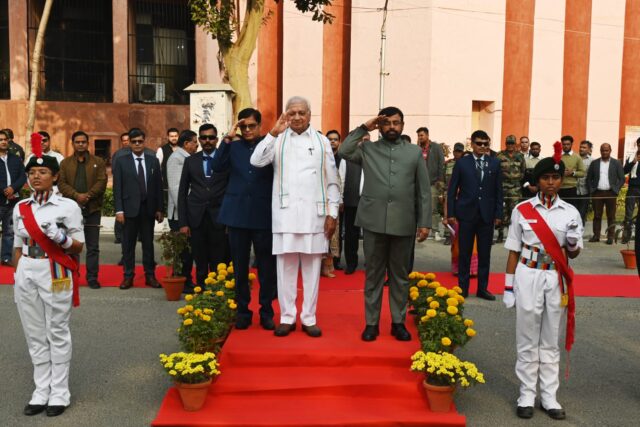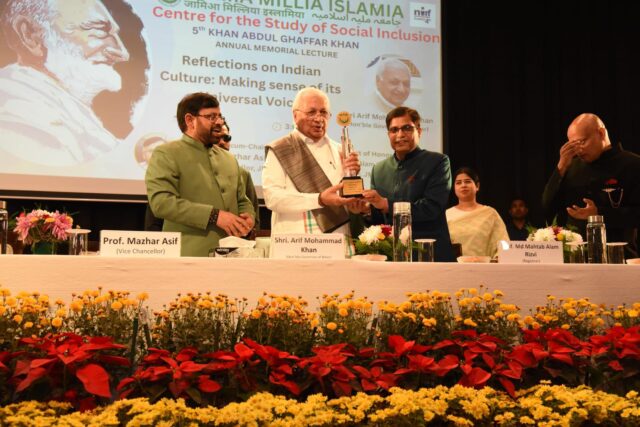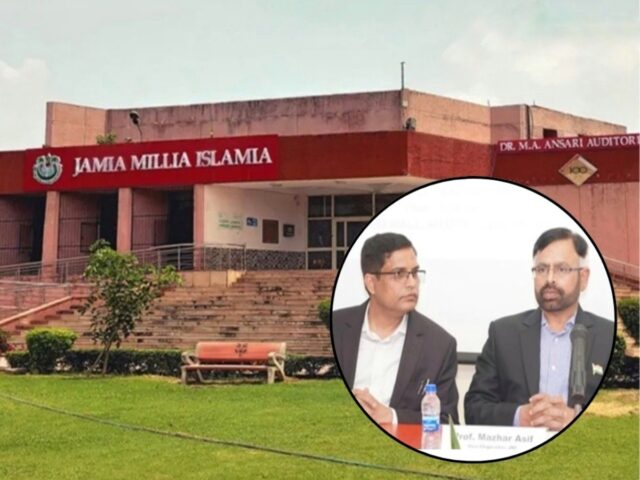38th Executive Committee Meeting of National Mission For Clean Ganga

The 38th Executive Committee meeting of the National Mission for Clean Ganga (NMCG) was chaired by Shri Rajiv Ranjan Mishra, Director General, NMCG during which some major projects in West Bengal, Uttarakhand and Bihar were sanctioned.
Detailed Project Report (DPR) of Interception & Diversion network for existing drains falling in river Ganga including sewage treatment plant (STP), North Barrackpore municipality, in West Bengal was evaluated and sanctioned during the meeting. As of now, there is no centralized sewerage network system in the town. The entire wastewater from the municipal town through surface drain flow into either River Ganga directly and/or flows into IchaporeKhal, PoltaKhal and Pochakhal. These khals ultimately flow into River Ganges. After completion of this project all the drains will have been tapped and no sewage will discharge prior to treatment. It will overall improve the quality of river Ganga. This project will include development of 2 STPs (30 MLD in Babanpore area and 8 MLD in Manirampore area). The project shall help in pollution abatement of IchaporeKhal, PoltaKhal and Pochakhal. The project is important as major water treatment plants in North Barrackpore area intake downstream of PochaKhal & IcchaporeKhal. Thus, the project shall have multiple objectives of river pollution abatement and ensuring safe water available at inlet of WTPs. Total cost of project is Rs 215 crore, which includes 15 years O&M. It would be implemented as Hybrid Annuity Model for ensuring performance.
Similar project for Interception & Diversion work and 3 new STPs in Dehri-on-Sone, Bihar were also evaluated and approved at the meeting. This project will include Development of 3 STPs (one 11 MLD near Shiv Mandir, One 7 MLD near Dalmia Nagar and one 3 MLD near the Islam Ganj) including necessary ancillary infrastructures, UV disinfection, SCADA and online monitoring system. Dehri-on-Sone town is situated on the banks of the River Sone, a tributary of river Ganga. The proposal on implementation will avoid the discharge of untreated sewage from Dehri-on-Sone town into River Sone and there by indirectly reduce pollution load to river Ganga. The estimated cost of the project with 15 years O&M is Rs 63.89 Crore.
Another infrastructure development project for Development of Mata Balkumari Bathing Ghat and Crematorium at Village Ajeetpur, Haridwar, Uttarakhand was also proposed by SPMG-Uttrakhand at the meeting. Mata Balkumari Temple has religious importance as a place where pilgrims gather all the year round. The aim of this project is to develop infrastructure with a holistic approach to create basic infrastructure facilities for general public for performing religious rituals.
A proposal for development of globally recognised centre for water reuse was discussed. This project is ‘NMCG-TERI Centre Of Excellence (CoE) On Water Reuse’. In the recent past NMCG has undertaken some projects and initiatives for wastewater reuse. But it has been observed that cost of treatment is comparatively higher for tertiary treatment. Hence there is a need to foster innovative and cost-effective technologies for tertiary treatment. TERI has already developed a new technology (TADOX) that can be integrated with the secondary treatment to achieve better water quality. The proposed CoE will have interface between the policy makers, regulatory authorities, financial Institutions, R&D, technology developers & providers and end-users including the industry and ULBs in the field of Wastewater Treatment and Reuse.
A project for ‘Engagement of Trained Eco-skilled Ganga Mitra in Public Outreach Awareness’ was evaluated in this meeting. In the proposal 315 Km area of the Ganga zone from Prayagraj to Ballia has been selected to deploy the Eco-skilled Ganga Mitra and perform various activities. Eco-Skilled Ganga Mitras have successfully created awareness about the Ecological, Scientific, Socio-cultural, Economic and Religious significance of the Ganga River and its associated water bodies at grass root community level. This project involving Ganga Mitras will help to improve socio economic conditions of the people living around river Ganga.
Project proposed by IIT Roorkee was guidelines for constructed wetland(CW) systems for treatment of sewage in India. Due to the lack of such guidelines for CW systems, the applications of recently proven efficient CW technology for sewage treatment are limited. This project will help in standardization of CW systems for efficient utilization of their potential in sewage treatment under the ongoing efforts of NMCG.
IIT Roorkee also presented a proposal on ‘Identification of Critical Soil Erosion Prone Areas and Preparation of Catchment Area Treatment Plan’. In India, about 5334 m-tonnes of soil is being detached annually due to various reasons and the rate of soil erosion is about 16.40 Mg ha−1 year−1. The critical soil erosion prone areas will be identified in this project and recommendation of best management practices shall be carried out from soil and water conservation view-point. The catchment of the Upper Ganga River (Haridwar-Narora stretch) located in western Uttar Pradesh has been selected as the study area.
Shri Rozy Aggrawal, ED (Finance), Shri Ashok Kumar Singh ED (Projects) and Shri DP Mathuria, ED (Technical), NMCG also participated in the meeting along with Prof B. D. Tripathi, BHU, Distinguish Fellow Dr Vibha Dhawan. Director General, The Energy and Resources Institute and Dr. Shyamal Sarkar, TERI, other officials from states and executive agencies.

